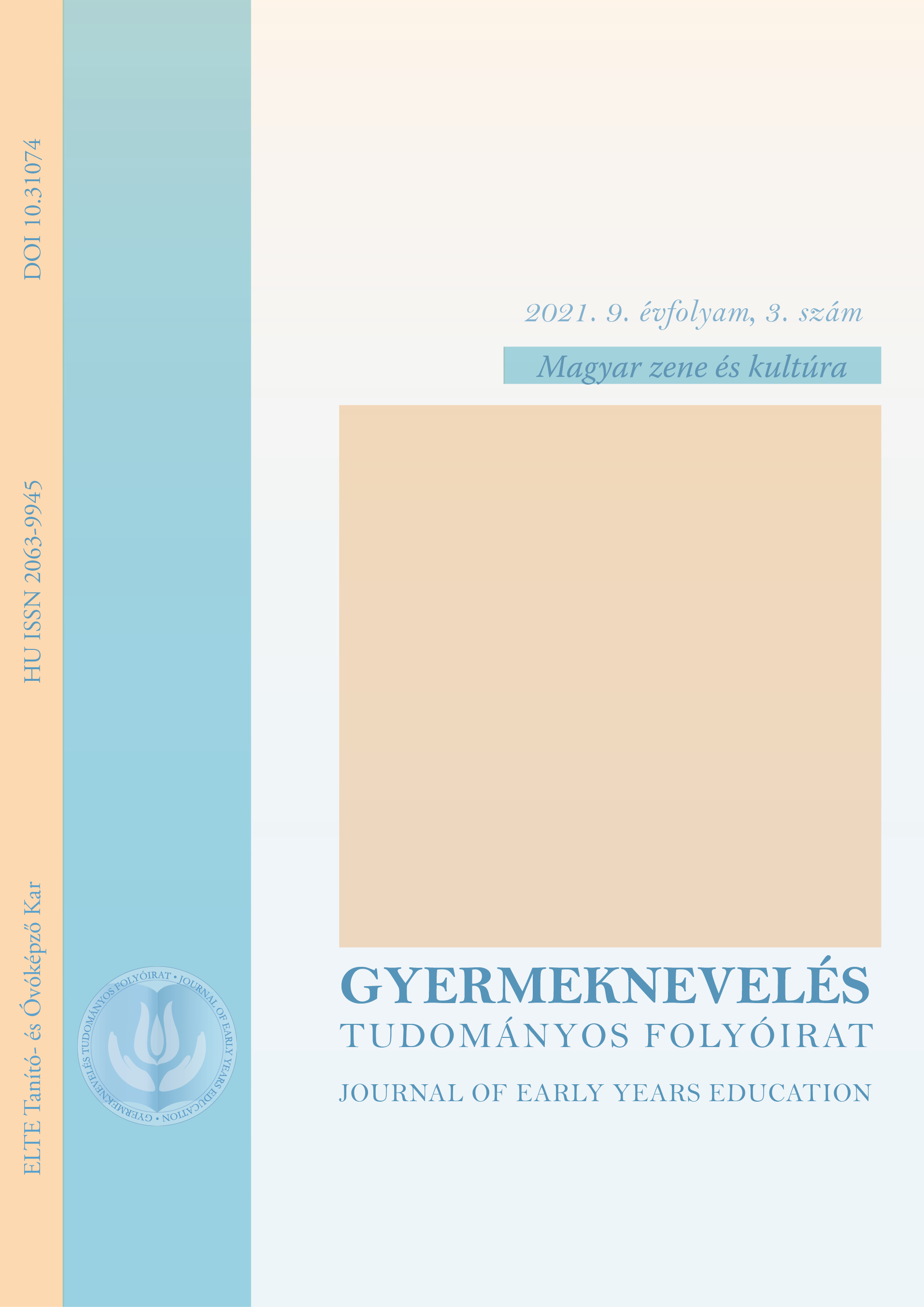Follower of the Hungarian composing tradition
Role of contemporary music in pedagogy
DOI:
https://doi.org/10.31074/gyntf.2021.3.118.127Keywords:
Hungarian music culture, music pedagogy, contemporary music, opera for children, musical receptivity educationAbstract
The aim of the study is, on the one hand, to direct attention to the work of the multi-talented and prematurely departed composer Zsófia Tallér and, on the other, to inspire music teachers by linking some aspects of contemporary music and primary-level music teaching. Zsófia Tallér acquired the principles and tools of the Hungarian composing tradition from masters like László Draskóczy, Attila Bozay and Emil Petrovics. An important element of her work is theme development and a melodic way of thinking. Instead of applying experimental techniques she used the traditional techniques of melody creation, always taking into account that she was composing for real life humans. Emil Petrovics inspired her to turn towards music for the theatre. In her work she was interested in the interrelationship between drama, music, and the emotions. She was very happy to compose for children and greatly liked the literature of fairy-tales. The study presents three of her musical compositions for children, each one in a different genre, all appropriate for experiential use in music classes. Her song cycle Boribon is playing music (2010), the series for piano entitled Kippkopp and Tipptopp (2009), like the two-act opera Leander and Linseed, was staged by the Hungarian State Opera House for three seasons. These all provide a variety of pedagogical opportunities for the development of musical skills, learning to play instruments, and education in musical receptivity.
Downloads
Downloads
Published
How to Cite
Issue
Section
License
Copyright (c) 2021 Author

This work is licensed under a Creative Commons Attribution-NonCommercial-ShareAlike 4.0 International License.

